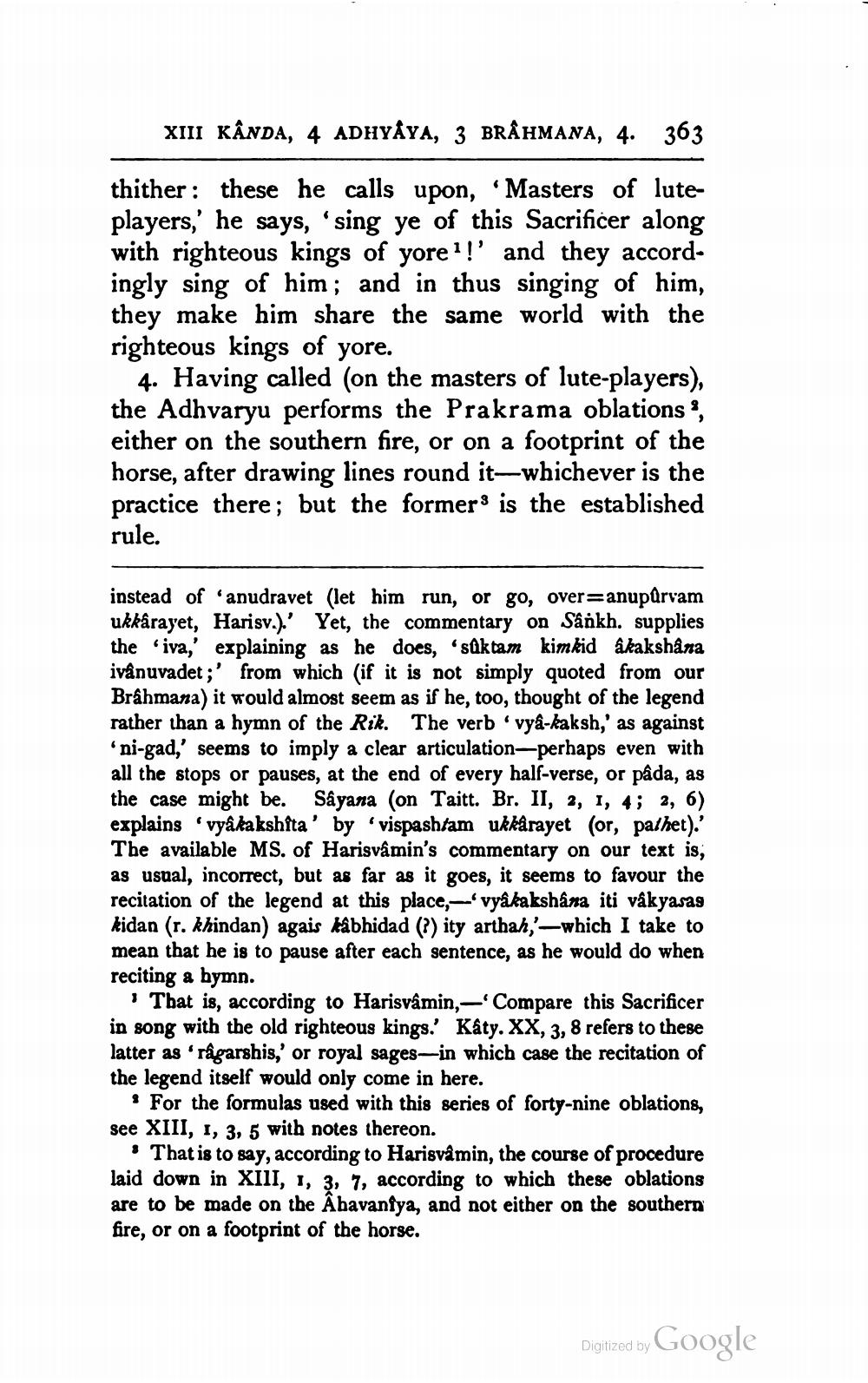________________
XIII KÂNDA, 4 ADHYAYA, 3 BRÂHMANA, 4. 363
thither : these he calls upon, Masters of luteplayers,' he says, 'sing ye of this Sacrificer along with righteous kings of yore?!' and they accord. ingly sing of him; and in thus singing of him, they make him share the same world with the righteous kings of yore.
4. Having called (on the masters of lute-players), the Adhvaryu performs the Prakrama oblations, either on the southern fire, or on a footprint of the horse, after drawing lines round it—whichever is the practice there; but the formers is the established
rule.
instead of "anudravet (let him run, or go, over=anupūrvam ukkârayet, Harisv.).' Yet, the commentary on Sankh. supplies the 'iva,' explaining as he does, “sûktam kimkid akakshåna ivânuvadet ;' from which (if it is not simply quoted from our Brahmana) it would almost seem as if he, too, thought of the legend rather than a hymn of the Rik. The verb vya-kaksh,' as against
ni-gad,' seems to imply a clear articulation, perhaps even with all the stops or pauses, at the end of every half-verse, or pâda, as the case might be. Sâyana (on Taitt. Br. II, 2, 1, 4; 2, 6) explains "vyåkakshita' by vispashtam ukkårayet (or, palhet).' The available MS. of Harisvâmin's commentary on our text is, as usual, incorrect, but as far as it goes, it seems to favour the recitation of the legend at this place -- vyåkakshana iti vákyasas kidan (r. khindan) agais kabhidad (?) ity arthah,'—which I take to mean that he is to pause after each sentence, as he would do when reciting a bymn.
That is, according to Harisvâmin, - Compare this Sacrificer in song with the old righteous kings.' Katy. XX, 3, 8 refers to these latter as 'râgarshis,' or royal sages-in which case the recitation of the legend itself would only come in here.
formulas used with this series of forty-nine oblations, see XIII, 1, 3, 5 with notes thereon.
. That is to say, according to Harisvamin, the course of procedure laid down in XIII, 1, 3, 7, according to which these oblations are to be made on the Abavaniya, and not either on the southern fire, or on a footprint of the horse.
Digitized by Google




